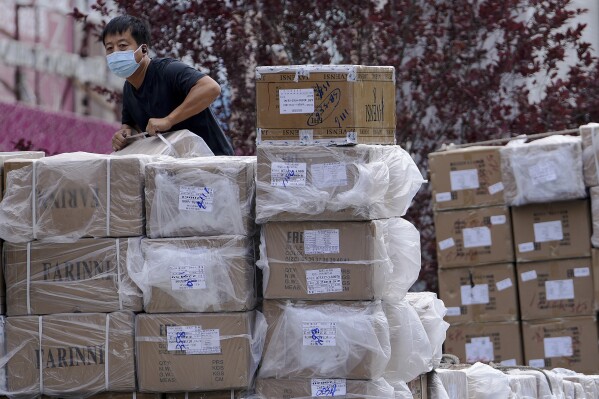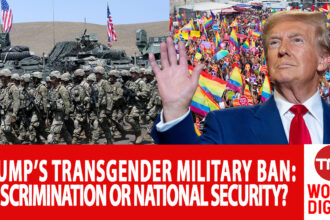President Donald Trump has decided that small parcels from China and Hong Kong should no longer enjoy duty-free treatment. Some retailers are scrambling for solutions, while others are simply giving up.
For years, the “de minimis” rule allowed e-commerce packages worth less than $800 to enter the U.S. without tariffs. It was a loophole that fueled the rise of fast-fashion giants like Shein and Temu and made it easier for small businesses to compete in the American market.
The removal of “de minimis” for products originating from China and Hong Kong exposes those goods to tariffs of 145% on most Chinese goods following U.S. President Donald Trump‘s decision last month.
This isn’t the first time tariffs have been used as a weapon in trade wars. Back in 2018, Trump launched a trade offensive against China, slapping tariffs on billions of dollars’ worth of imports. The goal? To bring manufacturing back to the U.S. But instead, it led to price hikes, supply chain disruptions, and a whole lot of political drama.
Now, with the latest tariff hike, some businesses are pulling out of the U.S. market entirely. British beauty retailer Space NK has paused e-commerce orders to American customers to avoid unexpected costs. Canadian lingerie brand Understance announced it would no longer ship to the U.S. until there’s more clarity on the situation.
Others are trying to adapt. Oh Polly, a British clothing retailer, has raised its U.S. prices by 20% to offset the tariffs. Meanwhile, Temu is pushing products already stocked in U.S. warehouses to avoid import charges. Beijing has already retaliated against past U.S. tariffs, and this latest move could escalate tensions even further.
Some say Trump is playing economic hardball, forcing companies to rethink their reliance on Chinese imports. Others argue that this is just another short-sighted policy that will hurt small businesses and consumers more than it helps American manufacturers.















